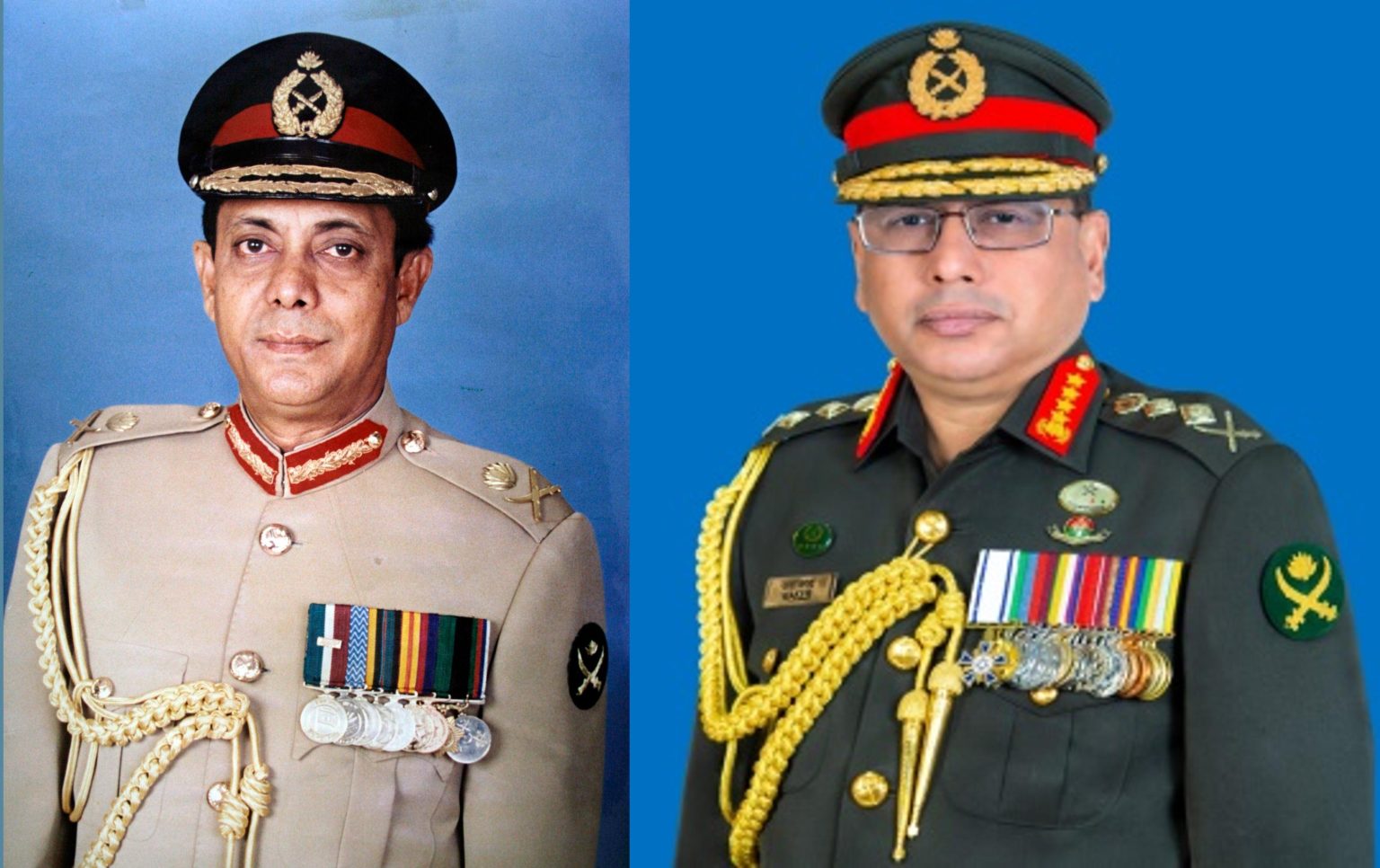Throughout Bangladesh’s turbulent political history, army chiefs have often played roles far beyond the barracks. From guarding democracy to disrupting it, these military leaders have stood at the intersection of statecraft and power—often amidst national crises. Their actions have, at times, altered the course of Bangladesh’s political destiny—and today, that legacy finds a new chapter under General Waker-uz-Zaman.
General Waker is the 18th Chief of Army Staff of Bangladesh.
After the country’s independence in 1971, the question of who would lead the army became a pressing issue.
General M.A.G. Osmany, who had commanded the liberation forces but had earlier retired as a colonel in the Pakistan Army, stepped back into civilian politics. Among the senior-most freedom fighter officers, Ziaur Rahman was seen by many as the natural successor to command the army.
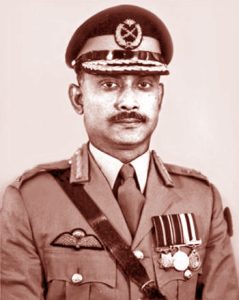
However, Bangabandhu Sheikh Mujibur Rahman appointed K.M. Shafiullah instead.
Even Shafiullah acknowledged Zia’s seniority and merit, but Sheikh Mujib emphasised political decision-making over military hierarchy. This early politicisation of army appointments would set the tone for future friction.
Shafiullah’s command ended in tragedy.
On August 15, 1975, a faction of army officers assassinated Sheikh Mujibur Rahman and almost his entire family. Shafiullah, though army chief at the time, failed to prevent the attack.
Ten days later, Ziaur Rahman became the army chief.
He soon emerged as the most powerful man in the country, riding the momentum of the November 7 uprising—a chaotic event that was part mutiny, part revolution.
He eventually became President through elections, but his leadership did not end the rift within the military.
Despite being a freedom fighter, Zia appointed a repatriated officer from Pakistan, H.M. Ershad, as his army chief—a decision that alienated many veterans of the liberation war.

After Zia was assassinated by military officers in 1981, Ershad seized power in a bloodless coup on March 24, 1982.
He ruled until 1990, when a mass uprising ended his regime.
The exit of Ershad was made possible in large part because the then army chief, Lt. Gen. Nuruddin Khan, refused to fire on civilians—a stance that earned him widespread respect.
Ershad, who reportedly resented Nuruddin, would often belittle him privately due to a later disability caused by an accident.
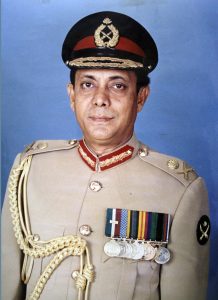
But for the public, Nuruddin became a symbol of restraint in a military that had often overreached.
A few years later, in 1996, another internal rift surfaced.
Amidst political turmoil over elections, two senior officers—Major General G.H. Murshed Khan and Brigadier General Hameedur Rahman—publicly criticised the situation.
When the then President Abdur Rahman Biswas asked Army Chief Lt. Gen. Abu Saleh Mohammed Nasim to take action, Nasim refused. Instead, he attempted to rally loyal troops to march on Dhaka
But key cantonments like Savar remained loyal to the government.
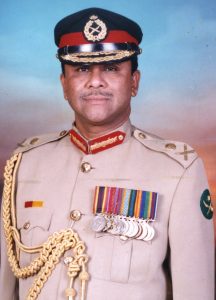
Nasim’s attempted mutiny collapsed, and he was arrested. His failure, while alarming, ultimately bolstered the image of an army that chose not to follow one man blindly.
His successor, Gen. Mahbubur Rahman, oversaw a relatively stable transition and later entered politics.
In 2007, the army once again stepped into the civilian domain under General Moeen U Ahmed.
As elections neared amidst political chaos, the military compelled then-President Iajuddin Ahmed to declare a state of emergency.
The entire caretaker system was reshaped, and a new technocratic regime was installed under former Bangladesh Bank governor Fakhruddin Ahmed.
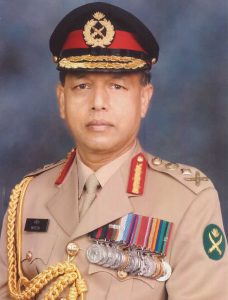
WikiLeaks cables later revealed that these moves were closely monitored and, in part, encouraged by the U.S. Embassy in Dhaka.
General Moeen reengineered parts of the political landscape, pushed anti-corruption drives, and elevated the army’s presence in governance.
His tenure, though initially popular among some sections of society, was later criticised for undermining civilian supremacy.
After the tenures of a few others, General Aziz Ahmed led the army from 2018 to 2021.
His rise came at the cost of superseding five senior generals, triggering controversy within the ranks.
While his tenure saw increased international deployments and strategic military pacts—including with Saudi Arabia—it was the 2018 national elections that defined his role.
Widely labelled as the “night vote” for alleged ballot-stuffing before polls opened, the election dented the credibility of both the government and the army.
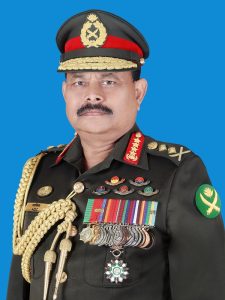
General Aziz, viewed as one of the architects of the rigged process, retired under a cloud of public distrust.
He was succeeded by General S.M. Shafiuddin Ahmed.
Then came General Waker-uz-Zaman, appointed as Chief of Army Staff in June 2024. Previously Chief of General Staff, he had held administrative and educational roles within the army, maintaining a relatively low profile.
But his moment came at a critical national juncture.
Amidst a wave of student-led protests and government crackdowns, Prime Minister Sheikh Hasina was forced to resign and go into exile on August 5, 2024—only weeks after Waker-uz-Zaman took office.
It was possible because the army, under his leadership, decided not to be the cause of further civilian casualties, which had already exceeded 1,000.
As a result, the country was able to avert more bloodshed, earning praise for Waker’s wisdom and pro-people stance.
Within hours of Hasina leaving the country, General Waker addressed the nation, announcing that the army would support the formation of an interim government led by civilians and student leaders.
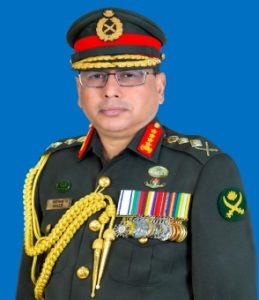
Nobel laureate Dr. Muhammad Yunus was sworn in as Chief Adviser in a landmark ceremony overseen by Waker, signalling the military’s willingness to hand over control to a reform-minded administration.
General Waker’s decision not only helped avoid civil war but also repositioned the military as a guardian of transition rather than an arbiter of politics.
By bringing student leaders such as Nahid Islam and Asif Mahmud into the advisory council, he signalled an openness to generational change.
He emphasised that the army would remain committed to upholding reforms, ensuring accountability, and supporting democratic elections within 18 months.
His tone and timing earned both domestic and international approval, though many are cautiously watching.
The history of Bangladesh’s army chiefs is a saga of power, defiance, and sometimes ambition. Some upheld the constitution; others redefined it.
Yet, in General Waker’s careful stewardship lies a chance to break with the past.
Many say Waker’s role also hinges on the interim government’s ability to follow through on its commitment to hold general elections between December this year and June 2026.


